Books
New Chapters: Return to Roots for Diaspora Writers
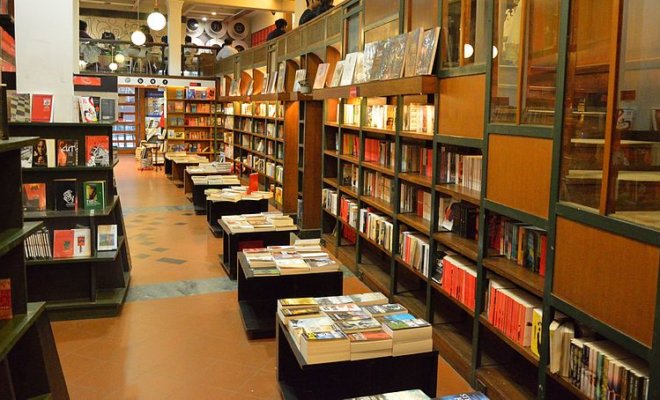
Oxford bookstore in Kolkata
Wikimedia Commons
South Asian writers are dotting the world of English literature and turning towards their origins through their works.
When the shortlist for the DSC literature prize was announced in November 2017, jury member Valentine Cunningham noted that a majority of contemporary South Asian writers were members of the diaspora. Yet, they all seemed to make their way back to their countries through their writing. Indian writers sometimes made the country the hero of the plot, while they recalled memories of their roots at some other times through their writings.
Many works of notable authors belonging to the Indian diaspora community, such as Indo-British writer Anjali Joseph’s The Living, Australian citizen Aravind Adiga’s Selection Day and United States-based Karan Mahajan’s The Association of Small Bombs, have a common connection — a setting in India. Right from the times of writers VS Naipaul and Salman Rushdie to Jhumpa Lahiri, among others, the common thread has continued to run through the pages.
Author Prajwal Parajuly, who is half Indian and half Nepali, has a relatively straightforward worldview on South Asian writing. “I think the world will continue being excited about South Asian writing in English. This applies to all kinds of books and not just those that have sari-clad women and mangoes on the cover.”
The writers’ place of origin and whether or not they choose to explore their roots is secondary, he says. “What matters is the quality of the work itself,” emphasizes Parajuly, who grew up in Sikkim, and has lived and worked in New York. His writing takes him to many parts of the world, and his novels mainly explore the many facets and experiences of the Nepali population.
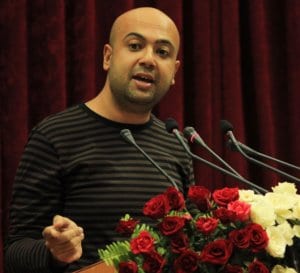
Prajwal Parajuly
Kanishka Gupta, the founder of literary agency Writer’s Side, represents many South Asian writers living overseas, including United Kingdom-based writer Anita Sivakumaran, author of The Queen, and Pakistani American novelist Nadia Akbar, whose book Goodbye Freddie Mercury is awaiting release.
Gupta says there is often a pattern in NRI authors seeking agents. “Many of them spend years looking for an international agent and, after exhausting their options, turn to Indian agents,” he says. International agents continue to feel that works of NRI authors are not appealing enough for a foreign readership, Gupta points out, adding that their manuscripts are not rejected or ignored because of quality.
So why do these writers look for international agents but turn to their homeland through their writing? “The writing is not as much about their homelands as about immigrant experiences,” Gupta elaborates.
Anjali Joseph’s The Living, that was shortlisted for the DSC Prize in September 2017, traverses between the lives of a shoemaker in England and one in Maharashtra. The author does revisit India through this novel, while also writing about her adopted home of England. However, Joseph, whose novel Another Country was on the long list for the Man Asian Literary Prize, feels that it is not common for all Indian writers to have a shared sensibility.
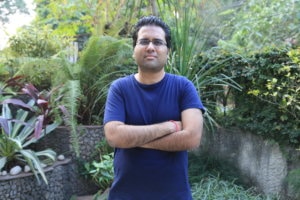
Kanishka Gupta
“I don’t think when I have written about India it has been driven by nostalgia any more than, for example, when I’ve been living in India and written about England, or about France,” she says. Joseph, however, is happy to see literature in Indian regional languages being translated into English. “It’s been nice to see translations from Indian languages appear in English, for example Vivek Shanbhag’s Ghachar Ghochar that appeared in London this year, translated by Srinath Perur,” she says. “Authors writing in Indian languages, although I don’t know much about writers in other South Asian countries, read all sorts of things in various languages, so why should they not be a part of a larger literary conversation?”
Neeta Gupta, the publisher of Yatra Books, agrees. “More and more South Asian writing is being translated into English and being published, both in India and abroad,” she says, adding that many of the readers for these translations happen to be based overseas, and, for them, reading these translations is like going back to their roots.
Industry observers, encouraged to read works set in India by authors belonging to the diaspora, see more of them coming. Kanishka Gupta of Writer’s Side feels that South Asians writing about their homelands is a trend that it is going to only grow. “The well-established South-Asian writers living abroad will continue to get published and win prizes,” he notes.
Gupta, in fact, even feels that the publishing power center may soon shift, although it sounds ambitious now. “South Asian writers won’t need the West’s validation anymore,” he asserts.
Parajuly’s hopes for the same — realization that Indian writers require less endorsement of the West. “Just because a book gets a stamp of approval from the West – in the form of a book deal from a UK or US publishing house – does not mean it’s an amazing book.”


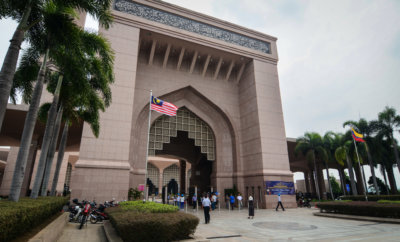
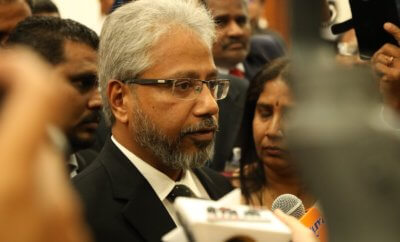
You must be logged in to post a comment Login